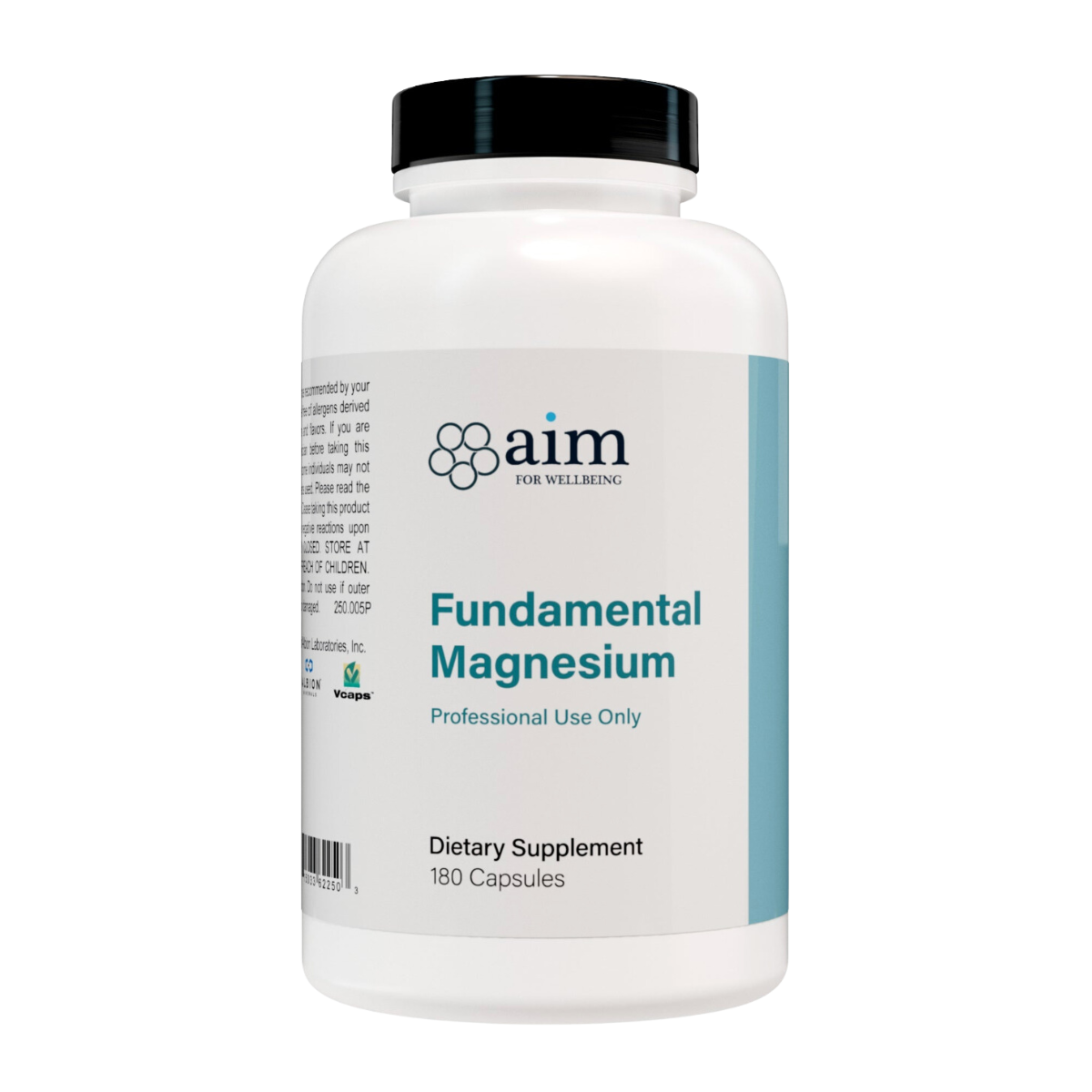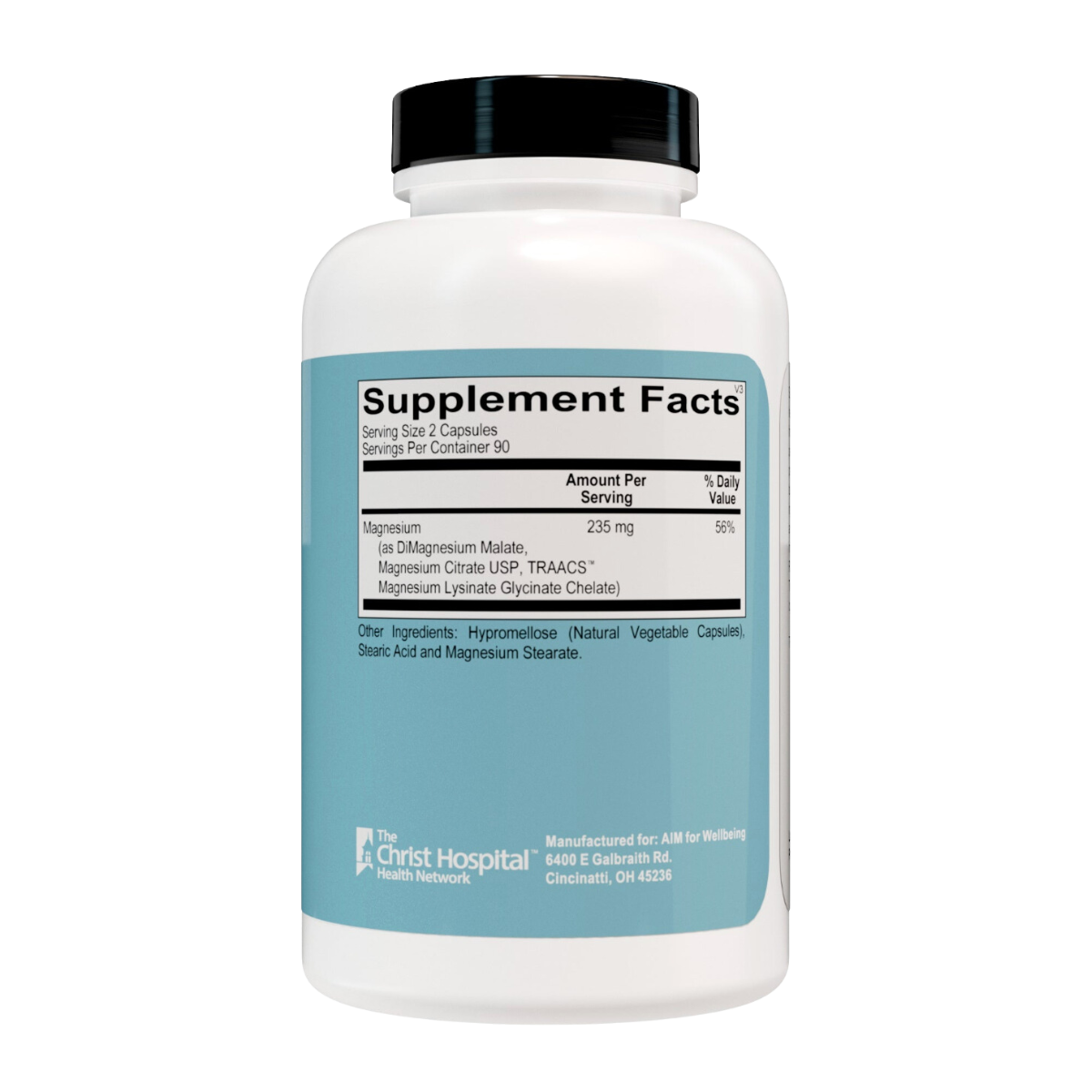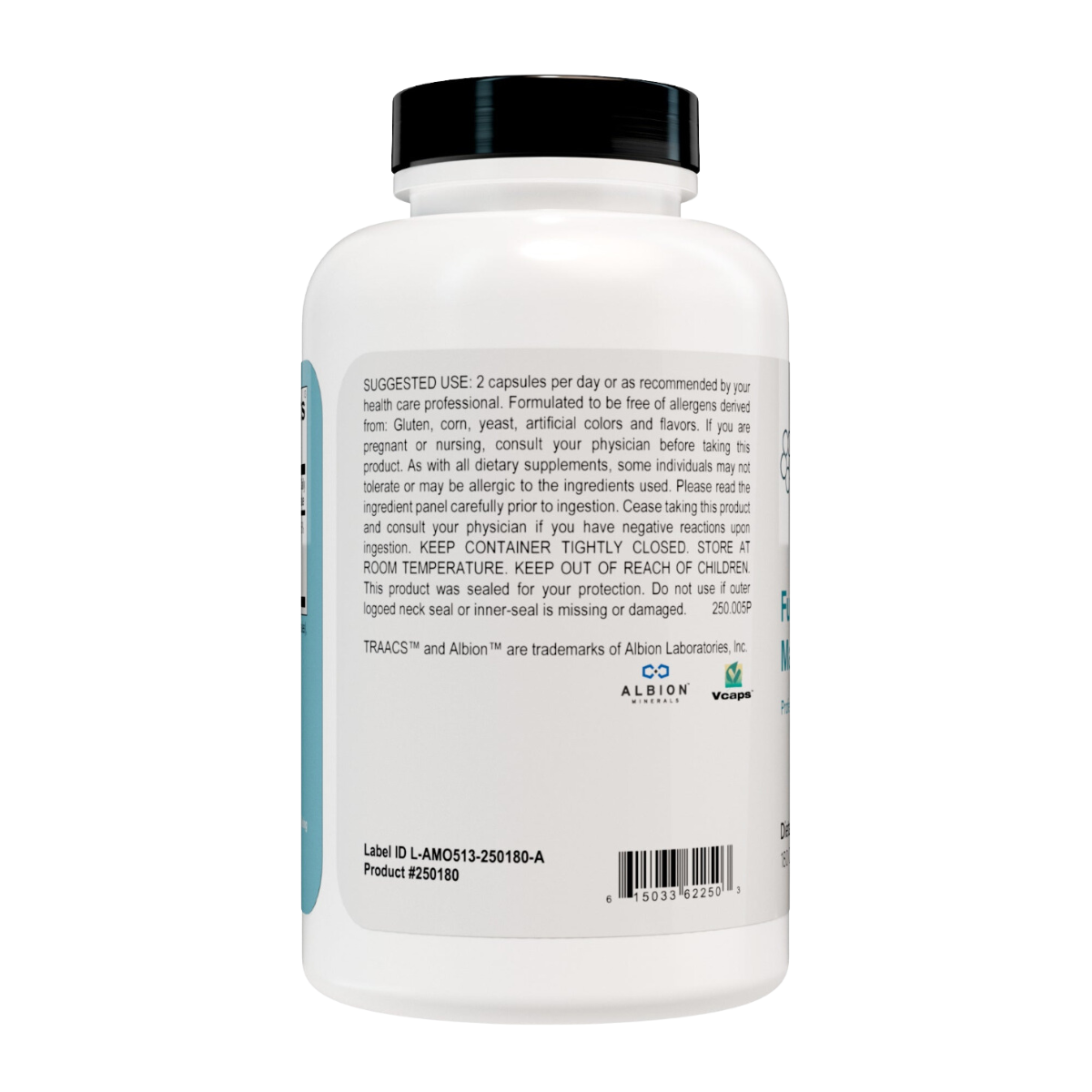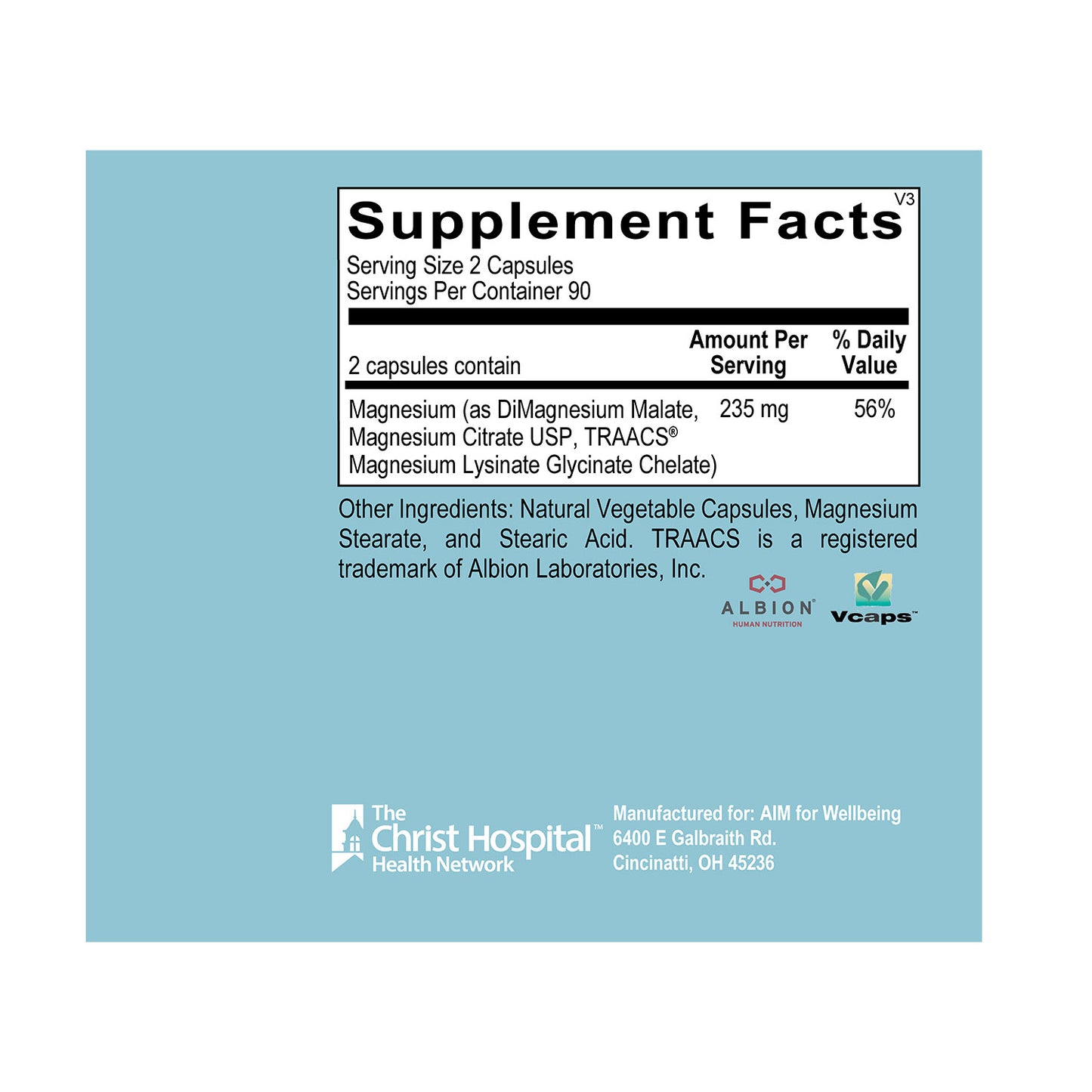-
- Our Approach
- Focus Areas
- Treatments
- Additional Treatments
-
- Shop
- Brands
- Focus Areas
Item added to your cart
Clinical Applications
Magnesium is an abundant mineral in the body and is found naturally in many foods, like green leafy vegetables. It is also found in over-the-counter medications, such as laxatives. The average American intake of magnesium, according to the National Health and Nutrition Examination Survey (NHANES Study) is critically low. Adequate daily intake of magnesium is critical for proper hydration, stress response, muscle relaxation, promoting healthy blood pressure levels, optimal bone mineral density, and blood sugar regulation.
Fundamental Magnesium provides three unique forms of highly-absorbed magnesium to ensure maximum absorption of this important macromineral. Most magnesium supplements use only a single source of magnesium, which can easily overwhelm a single pathway of absorption and limit uptake. Fundamental Magnesium takes advantage of three unique pathways of absorption by providing magnesium as di-magnesium malate, magnesium citrate and magnesium glycinate for enhanced absorption, improved utilization and gastrointestinal (GI) comfort. Some individuals, who take other forms of magnesium supplements, often experience GI side effects, including gas, bloating, diarrhea, constipation or a combination of these symptoms. The forms of magnesium used in Fundamental Magnesium preserve GI comfort while maximizing absorption and restoring magnesium levels in the body.
*This statement has not been evaluated by the Food and Drug Administration. This product is not intended to diagnose, treat, cure, or prevent any disease.
Ingredients:
Serving size: 2 capsules
Servings per container: 90
2 capsules contain:
Magnesium: 235 mg
(as DiMagnesium Malate, Magnesium Citrate USP, TRAACS Magnesium Lysinate Glycinate Chelate)
Other Ingredients: Natural Vegetable Capsules, Magnesium Stearate, and Stearic Acid.
*This product is formulated to be free of allergens derived from: gluten, corn, yeast, artificial colors and flavors.
Directions: Take 2 or more capsules per day or as recommended by your health care professional.
Caution: Keep out of the reach of children.
Tamper Evident: Do not use if safety seal is missing or broken.
Storage: Keep tightly closed in a cool, dry place.

Our Functional Medicine programs are a more comprehensive form of care, along with health coaching, to help patients learn how to upgrade their lifestyle – so they don’t remain stuck in the “chronic illness hamster wheel.”

Our patient coordinator is standing by, happy to answer any questions you have to determine if Alliance Integrative Medicine (AIM) is right for you.




We’re here to make your wellness journey easy. Find answers to common questions about our products, services, and more. Don’t see your question? Contact us—we’re happy to help!